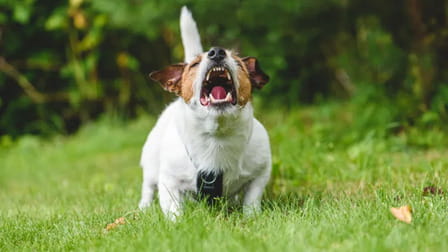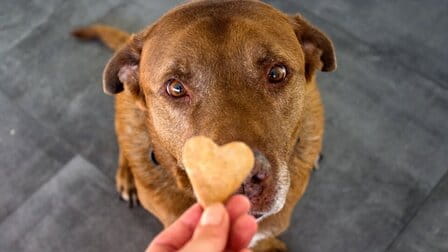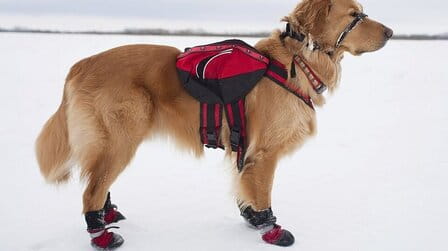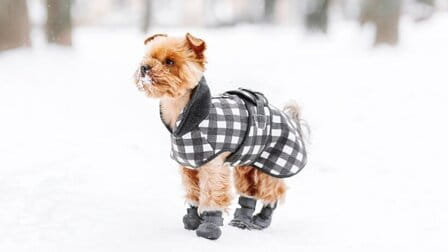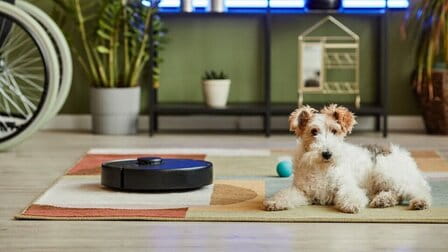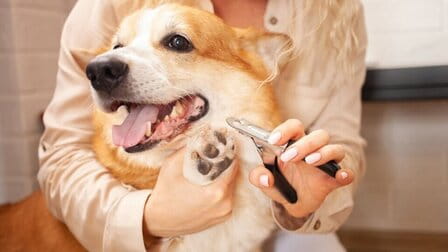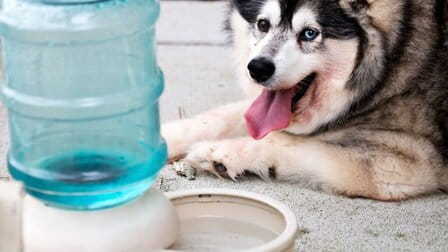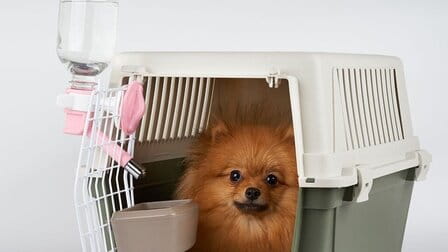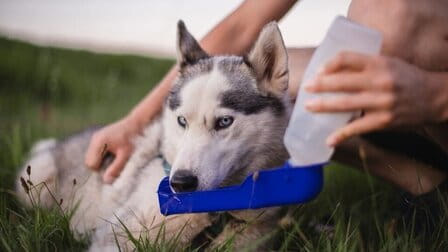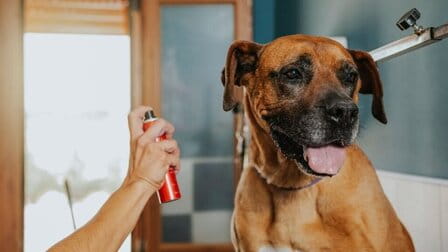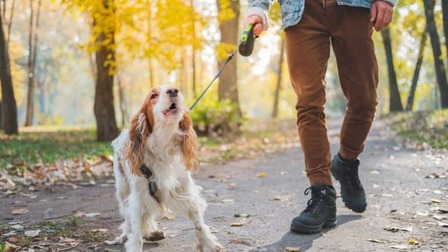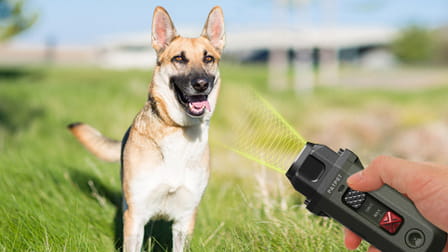You could feel bewildered, upset, and even frantic when your dog starts to pee in the house on a regular basis. Some dog parents have even given up their dogs due to housebreaking difficulties. Here are some things on the list on how to prevent dogs from peeing in the house.
How to Prevent Dogs from Peeing in the House
Even while mistakes happen, it can be quite upsetting if your older dog is constantly urinating indoors. It is important to take immediate action to address the frequent problem of dogs urinating in inappropriate places.
Finding out why your dog is urinating inside the home is the first step. If your dog is eliminating indoors, it can be because they are still learning, becoming older, or have a more serious urinary tract infection. We explain why your dog can be acting inappropriately when urinating below. And here are some ways on list how to prevent dogs from peeing in the house.
Track Your Dog's Behavior Now
Making good behavior is the first way on the list of ways to prevent dogs from peeing in the house. Make a note of your dog's actions, including when they eat, sleep, drink water, and relieve themselves. This enables you to keep tabs on how long they are holding it for and will put you both on a successful pattern, according to Ellis. Changing your dog's potty schedule to meet their daily routine can be all it takes to get them to go outdoors.
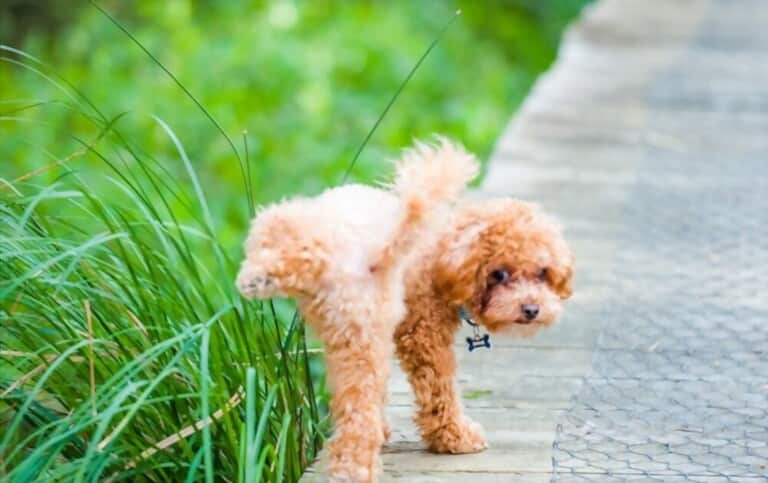
Use Reward-Based Training
Once your dog does potty outdoors, immediately praise them. Play with your dog, give them treats, or stroke their tummy. With positive reinforcement, these dog training devices encourage them to continue going outside.
As soon as it occurs, be sure to give them a treat so they realize it's for urinating outside and not coming through the door or engaging in any other activity. You may gradually wean them off the rewards as they gain knowledge. When they do go outside till then, make a big deal out of it.

When you're not home, keep your dog indoors
When pets are left unsupervised, accidents are more likely to happen. A dog box, enclosure, or tiny bedroom might help prevent accidents if you're not home. Constricting dogs to a confined space can help remove the temptation since they are less likely to urinate where they sleep or play.
Alternatively, you may try putting them in a spot where they are permitted to relieve themselves, such as a dog run or a box with a pee pad inside.

Maintain your dog in the same room like you
Maintaining your dog in the same room as you is also a good way to prevent dogs from peeing in the house. Until your dog is fully housebroken, keep them nearby. This enables you to witness the accident as it unfolds and hasten to get them outdoors to finish. As they finish using the outside potty, you should treat them straight immediately so they can learn to see it as a positive experience.

Do Not Treat A Puppy As A Senior Dog
According to Ellis, puppies and older dogs have more accidents, but perhaps for different causes. It's important to teach puppies the difference between using the restroom indoors and outside. You must teach the puppy where to use the potty outside and provide regular pauses.
It's possible that older dogs can't contain their urine for as long as they formerly could. You must keep utilizing incentives in both scenarios.

Check to see whether anxiety is the real problem
Because they are overexcited, worried, or nervous, some dogs urinate within the house. Loud voices, loud noises, strangers, sirens, and other stressful events may cause your dog to respond.
By limiting these uncomfortable contacts where you can, or by gradually exposing your dog to additional individuals or settings where this can occur, you can help your dog. A thunder jacket can soothe certain dogs that are anxious.
Why Do Dogs Urinate Inside Homes?
Dogs may urinate inside for a variety of reasons, but most often they do it in reaction to another problem. Although it's simple to assume that your dog is just being nasty, the odds are that it's absolutely unrelated to them and beyond their control.
Your dog is merely trying to tell you something is wrong if you observe a significant change in how they act. They could not feel well or be scared of anything. Your cue to pay attention and contribute to the investigation of the situation.
Your dog may be attempting to communicate with you when they unexpectedly urinate indoors. Sometimes the main problem is as simple as not spending enough time outdoors throughout the day and breaking down after a while. It can occasionally be a little more complicated. Let's examine a few prevalent causes:
Worry or tension
If your dog is peeing inside and your veterinarian is unable to identify a medical issue, your dog may be experiencing anxiety of some kind. Look at your dog's life; has anything changed suddenly or significantly? Have you lately relocated or adopted a new human or animal family member? Has your daily routine undergone major change, such as new or extended working hours that might be triggering separation anxiety? Are you staying at home more often than usual?
Excitation or obedience
Your dog's indoor accidents may also be caused by submissive or excited urinating. When a dog is really aroused, or when they feel exposed or threatened, they may lose control of their bladder.
Examples of this include dogs that squeal with delight when they meet you or dogs that crouch in terror and lose control of their urine. Puppies frequently become over excited and lose control of their bladders, but they typically outgrow this. Nonetheless, it's not unusual for some dogs to continue acting in this manner as they age.
Older Dogs
While puppies may still have accidents while they learn to use the bathroom, older dogs may develop new urine accident triggers.
Aging dogs may develop dementia or senility, which might cause them to dirty the house. These dogs could forget how to use the bathroom or even just where they are.
As people get older, other health problems, including renal failure, also have a tendency to surface. Another justification for involving your veterinarian early and frequently is this. Dementia may occasionally be substantially controlled with drugs and nutritional aids. Doggie diapers or lining the dog's bedding and other frequently used places with absorbent pads are two common solutions for those who live with older dogs that have urinary difficulties.
Conclusion
Using a behaviorist or trainer can be particularly beneficial if you're still having trouble housebreaking a dog that is more than 4 months old or if you've recently rescued a new rescue pup as an adult and are having trouble resolving one or more challenging behavioral issues. But ideally, in the majority of behavioral situations, these 6 ways to prevent dogs from peeing in the house will be helpful to you and your dog and will help maintain your relationship as a strong and happy one.

